Iranian Activist Sentenced To 15 Months After Unmasking Interrogator
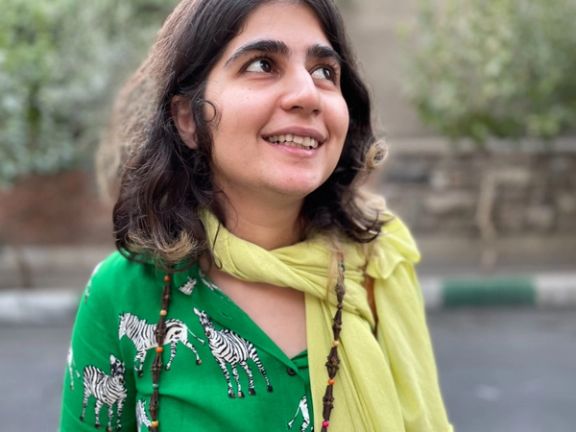
Iranian activist and labor journalist Sepideh Qolian, who was jailed before, has received a 15-month prison sentence due to a complaint by pro-regime reporter.

Iranian activist and labor journalist Sepideh Qolian, who was jailed before, has received a 15-month prison sentence due to a complaint by pro-regime reporter.
Qolian (Gholian) gained prominence for her journalistic coverage of prolonged labor strikes at the Haft-Tappeh sugar factory during 2017-2018. Her advocacy on behalf of workers' demands resulted in her arrest and subsequent imprisonment.
In 2019, while detained at Qarchak Prison, Qolian witnessed her own confessions being broadcast on state television. She identified the TV presenter as Ameneh Sadat Zabihpour, known as a mouthpiece for the Iranian regime. She was also a prison interrogator referred to as Ms. Askari during her interrogations. The case was publicized by Qolian which led to Zabihpour filing a lawsuit against her.
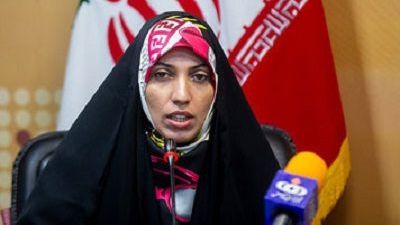
The latest court session pertaining to this case took place on August 22. Notably, this session was conducted in secret due to Qolian's refusal to wear the mandatory hijab.
Mehdi Qolian, Sepideh's brother and a civil activist himself, documented the court proceedings on his Instagram account. He reported that Zabihpour repeatedly objected to Sepideh's presence in court without wearing a headscarf. In response, the court judge issued a "criminal offense" against Sepideh for this reason.
Throughout the court session, Zabihpour, who combines the roles of an interrogator and a reporter, persistently threatened Qolian with charges such as "spying" and "sedition" from the moment she entered the courtroom.
Qolian's commitment to activism remained unwavering even after she completed a four-year prison term and was released in March. Shortly after her release, she was re-arrested for publicly chanting against Supreme Leader Ali Khamenei while not wearing a hijab. This led to an additional two-year prison sentence.

Meta, parent company of Facebook and Instagram, said it thwarted five foreign adversary-linked social networks in its recent quarterly threat report.
The comprehensive report sheds light on the covert influence operations eliminated by Meta, underscoring the large scope of these activities that extended beyond the social networks directly owned by the company.
One of these operations involved the collaborative efforts by elements in Turkey and Iran, resulting in the removal of 22 Facebook accounts, 21 Pages, and seven Instagram accounts. The operation primarily targeted individuals within Turkey, utilizing seemingly independent news sources disseminated through the created pages.
Supportive content about the Islamic Republic and Palestine, coverage of speeches by Supreme Leader Ali Khamenei, and critical notes regarding Israel, the United States, the Turkish government, and the Justice and Development Party of Turkey were among the fabricated content disseminated by this fake network.
During the removal process, Meta identified a recurring challenge posed by covert operations employing doppelganger accounts to impersonate legitimate news outlets or brands. The report specifically underscored the risks associated with domain registration and tactics where malicious actors acquire domains closely resembling official ones, often incorporating common typing errors. These deceptive strategies are aimed at misleading users into believing they are accessing official websites.
Despite Meta's actions to remove pages affiliated with these operations from its platforms, these deceptive websites persist and continue to propagate misinformation.

A new wave of emigration, sparked by the crackdown on last year's nationwide protests and a deep economic crisis, is reaching a critical point, according to experts.
A massive wave of emigration happens when the economy is in crisis and there are other crises such as political and social alongside it, Dr. Saeid Moidfar, chairman of the Iranian Sociological Association, told the reformist Jamaran news website Wednesday.
Moidfar warned that Iran is now on the threshold of a very intense wave of emigration because those who want to leave believe that political and economic circumstances are not going to improve in Iran, the society’s values are losing their worth, and corruption and crime are on the rise.
“You reach the point where you think this is no longer a good place to live, and you should leave as soon as you can when you feel you are in a country where you are not involved in the decision making system, the country is not being run based on sound principles, your overall economic misery is increasing by the day, and social values are being sullied,” Moidfar said.
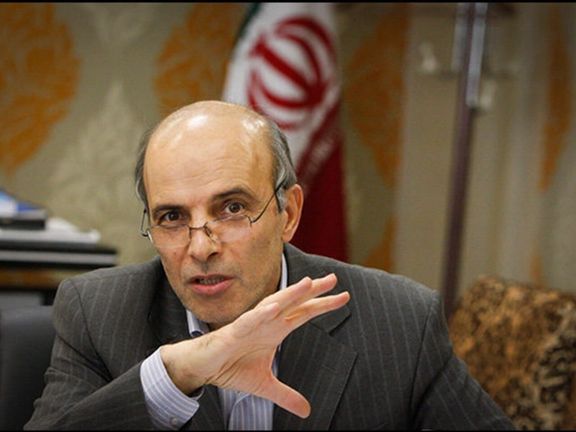
Iran’s economy has suffered years of mismanagement and international sanctions, which emanated from its foreign policy and a suspicious nuclear program. Iran’s currency has fallen 12-fold since 2018 and more than 6000-fold since the 1979 revolution. In 1978, one US dollar would buy 70 rials and now the exchange rate is close to 500,000.
According to Moidfar, people lost their hopes in the future of the country when they elected the moderate Hassan Rouhani for a second term in 2017 but were disappointed with the results. The government had no desire to respond to people’s wishes and it would have been prevented from doing so even if it wanted to, he argued.
The sociologist was probably referring to power wielded by Iran’s ruler Ali Khamenei, the Revolutionary and their hardliner supporters who were constantly besieging the Rouhani government.
“Since 2017 the country has been in deep crisis. All prospects of change have been lost and there is no hope for the future of this country any longer,” he said.
Also speaking to Jamaran on Saturday, the former President Rouhani criticized the ongoing purge of university professors that has outraged many Iranians and acknowledged that such purges would lead to a higher rate of emigration.
Observers say the dismissal of dissident professors may be a preemptive move to reduce the chances of campus protests on the first anniversary of Amini's death and that the regime wants to replace its ideological adversaries among the academia with those supporting its own ideology.
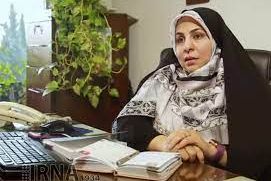
Somayeh Tohidlou, sociologist, told the reformist Etemad daily last week that ideological contradictions, the feeling of being humiliated, and the loss of dignity were among the most important factors contributing to the urge to leave.
“At least 6,000 doctors would not have left Iran this year if the government had an issue with the emigration [of professionals],” she said and argued the government has no problem with people leaving because those who leave, unlike those who support the regime, are ideologically undesirable and should be dispensed with.
Driven by economic and professional problems, as well as lack of social and political freedoms, an increasing number of Iran's healthcare professionals have been leaving the country in the past year, giving rise to the fear of serious deterioration of the country’s healthcare system but government officials refuse to acknowledge the problem.
According to Dr. Moidfar, it is now not just those with a high level of education or wealth who wish to leave but ordinary people who would not normally have thought of emigration are also dreaming of leaving the country.
Emigration of the younger generation and brain drain have plagued Iran for decades but the desire to leave has been growing much faster since last year’s suppression of the Woman, Life, Freedom protests, experts say.
There are no reliable figures on the number of people who have left Iran in the past year and secret because statistics on emigration is treated as a national security issue and kept secret.
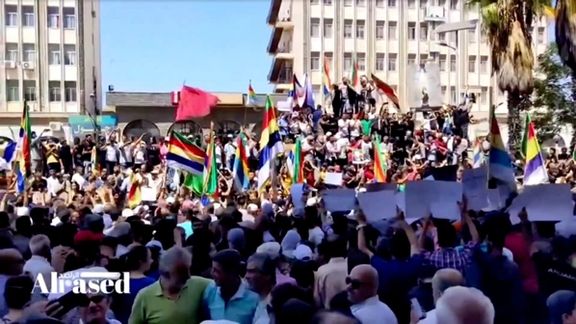
Syrian protesters continue to urge President Bashar al-Assad to step down and Iran leave the country, as economic conditions deteriorate.
Hundreds gathered in southern Syria on Friday capping nearly two weeks of demonstrations that erupted over poor living conditions but have spiraled into renewed calls for political change.
"Bashar out, Syria free!" shouted a large crowd in the southern Druze city of Sweida. "Syria is not a farm, we are not sheep," read another poster.
Dozens also gathered on Friday in the province of Daraa, where the 2011 protests kicked off. They carried the three-star flag emblematic of Syria's uprising, as well as signs criticising the role of Iran, which has supplied troops, weapons and money to Assad since 2011.
Syria is in a deep economic crisis that saw its currency plunge to a record 15,500 Syrian pounds to the dollar last month in a rapidly accelerating free-fall. It traded at 47 pounds to the dollar at the start of the conflict 12 years ago.
Demonstrations broke out in Sweida in August over the removal of fuel subsidies. Home province of most of Syria's Druze community, Sweida remained in government hands throughout the war.
Open criticism of the government remained rare in the areas it controls but as the economic situation grew worse, the discontent has gone public.
Residents of other government-held parts of Syria - where restrictions are tighter - have made more discrete gestures of protest to avoid detection by government forces.
In the coastal province of Tartus on Thursday, some residents held up small postcards reading "Syria belongs to us, not to the (ruling) Ba'ath party", according to photographs posted on activists' social media pages.
Reporting by Reuters
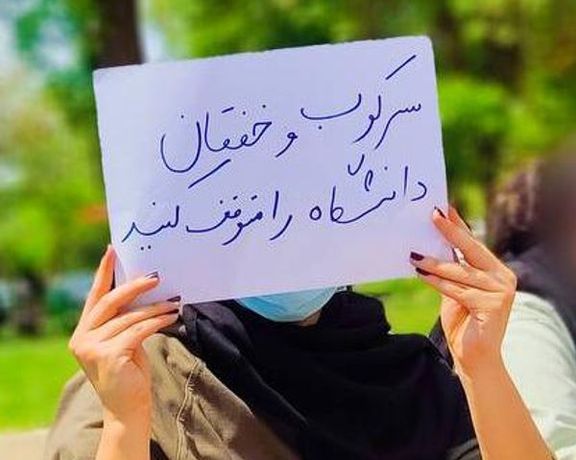
A student-led campaign has garnered over 13,000 signatures in opposition to the expulsion of Professor Ali Sharifi Zarchi from Sharif University in Iran.
The petition, initiated by students and alumni of the university, has gained traction in response to the removal of Zarchi, a faculty member at the institution.
Organizers of the campaign argue that purging who are professors described as "knowledgeable and caring" from the academic community not only undermines the foundations of education but also discourages students, potentially leading them to seek educational opportunities abroad.
Zarchi had previously been summoned by security authorities during the country's period of civil unrest and had recently made reference to a document suggesting that the government, under President Ebrahim Raisi, had initiated the recruitment of 15,000 pro-regime faculty members for dozens of universities.
Furthermore, this incident is part of a wider trend where numerous professors have faced expulsion from Iranian universities due to their critical viewpoints and support for students and the general public in recent weeks and months. Reports of more professors facing similar fates continue to emerge regularly.
One of the latest cases of expulsion involves Somayyeh Sima, a faculty member in the Water Engineering Department at Tarbiat Modarres University.
Student union councils across the country have also reported the expulsion of Hamid Reza Nazarinejad, an associate professor in the Faculty of Law at Gilan University and a former president of the Gilan Bar Association.
In addition, student associations have reported the "prohibition from teaching" of Hassan Bagherinia, a faculty member in the Psychology and Educational Sciences Department at Hakim Sabzevari University, describing it as a "new method of suppression."
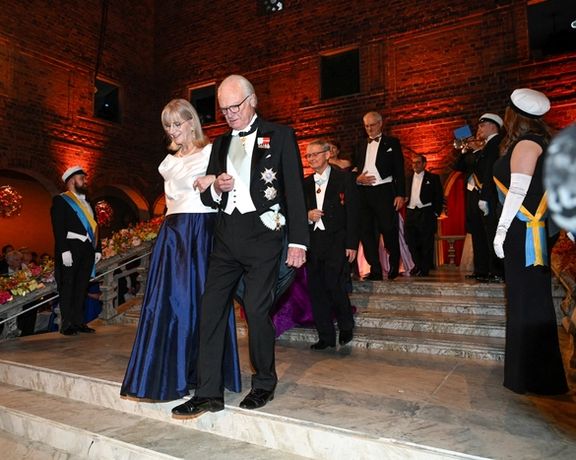
The Nobel Foundation said on Saturday it would not after all invite the ambassadors of Russia, Belarus and Iran to attend the Nobel Prize awards ceremony in Stockholm this year.
The announcement reversed an earlier decision to invite the three countries will be invited after widespread criticism.
Last year, the foundation left out the ambassadors of Russia and its ally Belarus because of Moscow's invasion of Ukraine, as well as Iran for its human rights violations. Iran also assists Russia in its invasion of Ukraine by supplying hundreds of kamikaze drones.
The foundation said on Thursday it would invite them, and Iran's ambassador, to this year's prize award ceremonies in December, commenting that it sought to include even those who did not share the values of the Nobel Prize.
That announcement prompted the leaders of several Swedish political parties to say they would boycott the ceremonies.
"We recognize the strong reactions in Sweden," the foundation said in a statement on Saturday.
"We, therefore, choose to repeat last year's exception to regular practice – that is, to not invite the ambassadors of Russia, Belarus and Iran to the Nobel Prize award ceremony in Stockholm."
The prize-winners are announced in early October and five of the six Nobel prizes are awarded in Stockholm every year after a nomination process that is kept secret for the next 50 years. The Nobel Peace Prize is awarded in Oslo where separate festivities are held.
Reporting by Reuters






